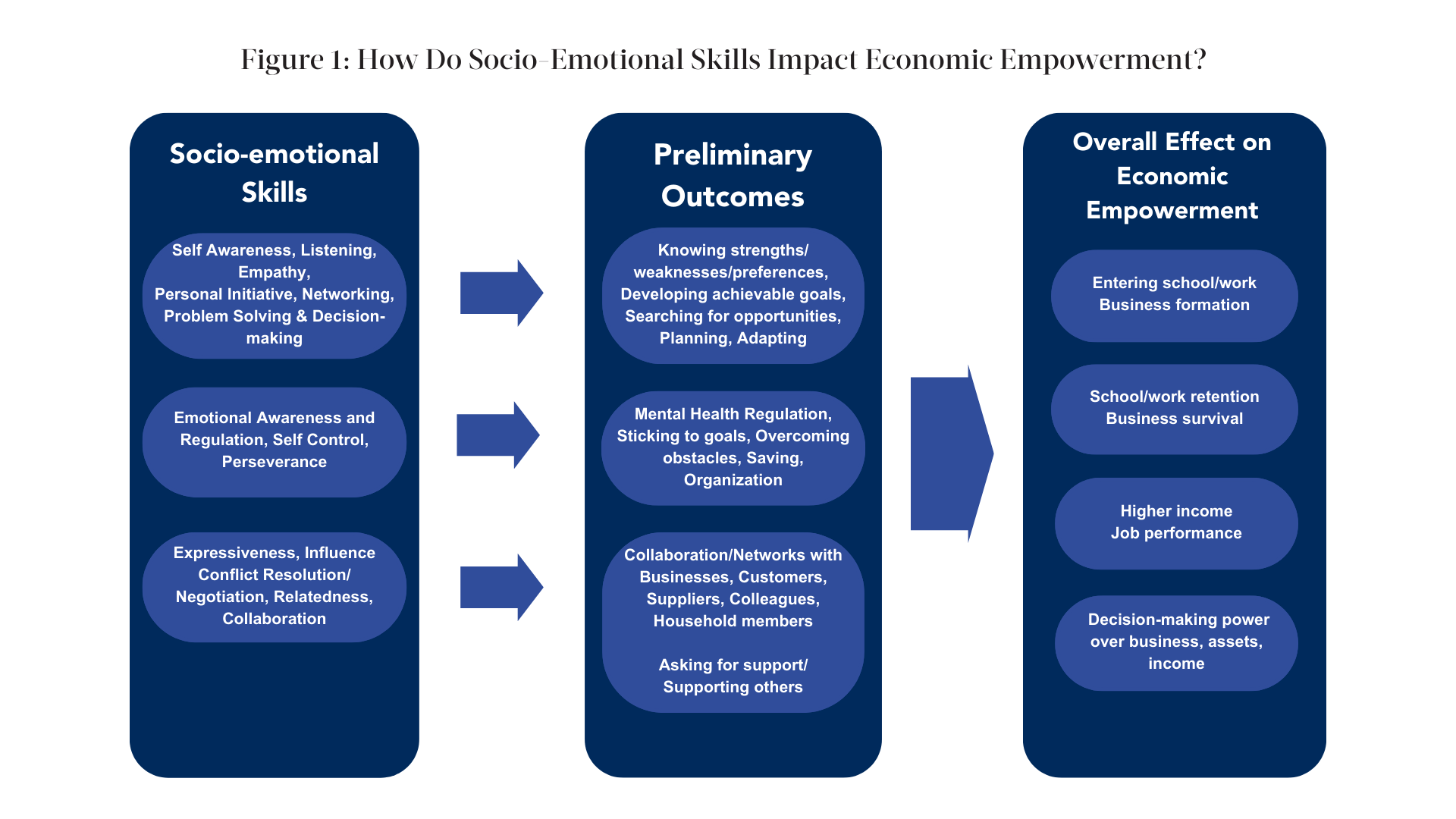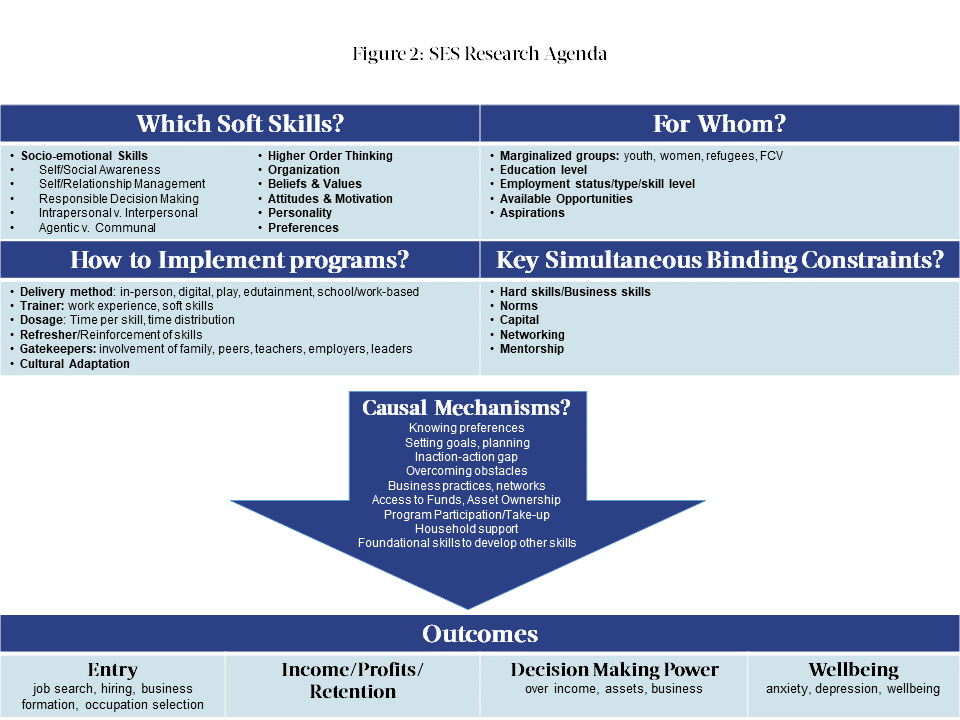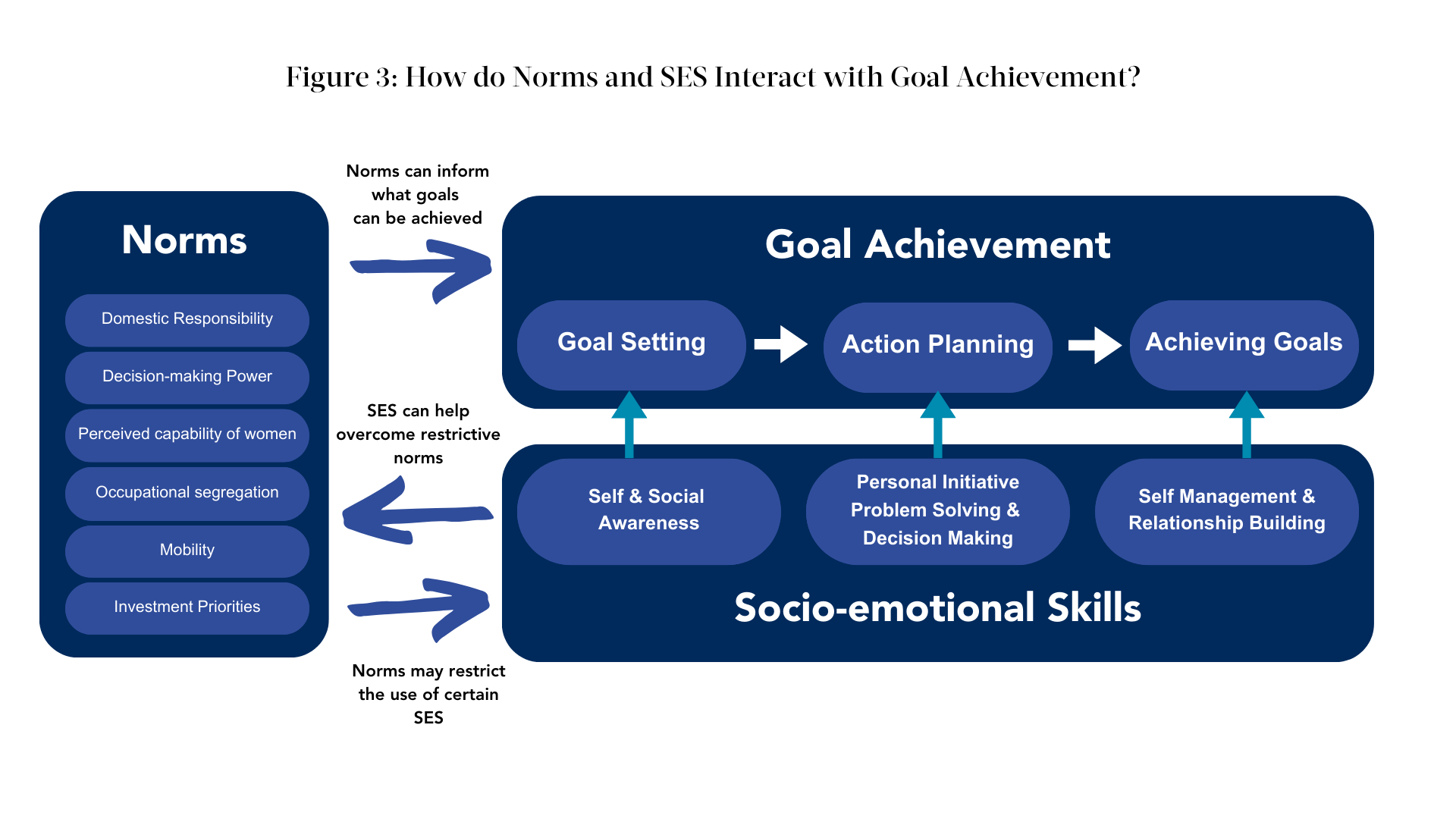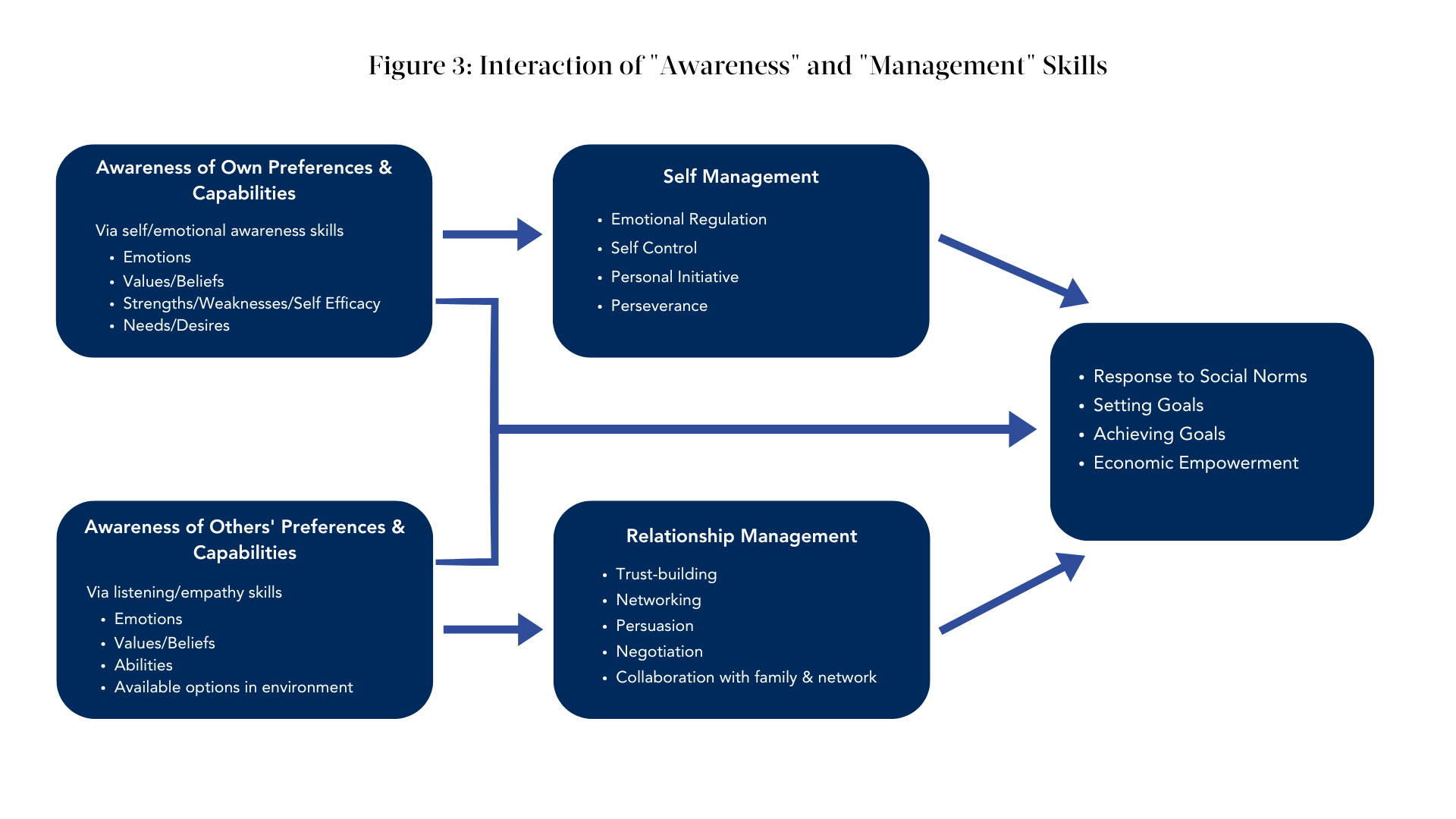Theory of Change
Socio-emotional skills (SES) can be developed to improve economic empowerment. However, it is unclear how to best leverage SES as a policy lever: which skills matter most, for whom, and how can they best be imparted? Which skills matter will depend on the target group: available opportunities, their goals, and which behaviors are socially acceptable. However, we expect that some skills are key for developing preferences (self-awareness, listening), developing an action plan (personal initiative, problem solving & decision-making), sticking to goals (emotional awareness and regulation, self-control, perseverance), and working with colleagues, business associates, customers, and household members (expressiveness, influence, interpersonal relatedness, negotiation, collaboration).

SES Research Agenda
As there is mixed evidence on whether/when SES matter for economic empowerment, we propose the research agenda in Figure 2 to examine which skill matter for whom, how these programs should be implemented, if simultaneous binding constraints must be tackled for SES to improve economic empowerment, and which causal mechanisms are at work.

How Do Social Norms and SES Interact to Influence Economic Empowerment?
Social norms can influence individuals to align their preferences and goals with what they deem as socially and culturally appropriate. They may also limit an individual’s ability to use particular SES. For instance, a more individualistic society may constrain a person's ability to be more collaborative; in a more collectivist society, individuals may have the difficulty fostering skills such as personal initiative, expressiveness, or negotiation. Which behaviors are sanctioned may differ with demographics such as gender, age, and income. In some contexts, gender norms may indeed be less conducive to women investing in assertiveness or negotiation skills. SES tied to social awareness may increase the salience of these norms. Alternatively, skills such as perseverance and influence may be used to overcome societal barriers to economic empowerment. However, little rigorous evidence is available on this topic.
When designing an intervention or evaluation, it is important to consider: What goals and behaviors are common or socially acceptable in this culture? What are the social, cultural & legal consequences of defying norms?

Are Some SES Foundational?
Research has found an interactive relationship between many SES. Moreover, some skills appear to be foundational for the development of others; negotiation, for example, requires the ability to understand one’s own preferences and opportunities (self-awareness) and the preferences and opportunities of others (empathy), find a win-win solution (problem-solving and decision-making), and influence the other party. Some practitioners have indicated that they believe awareness skills to be foundational for management skills (see example theory of change in Figure 3), or intrapersonal skills to be foundational for the development of interpersonal skills. However, most evidence demonstrates correlation rather than causation, and correlation may be a function of measurement.













